Assets
TIP
It takes about 20 minutes to read this article
For developers to quickly understand and use assets, this article contains the following 3 parts:
(1) Asset Concept (2) Introduction to Local Asset Library (3) Asset Type Description
Asset Introduction
What are the assets
- Editor provides developers with models, materials, textures, effects, animations, sounds and other related materials
Application scene for asset
- Drag and drop from local asset library into viewport or object manager when main editor runs
Local Asset Library User Guide
Local Asset Library Presentation
- The local asset library resides to the left of the editor main interface
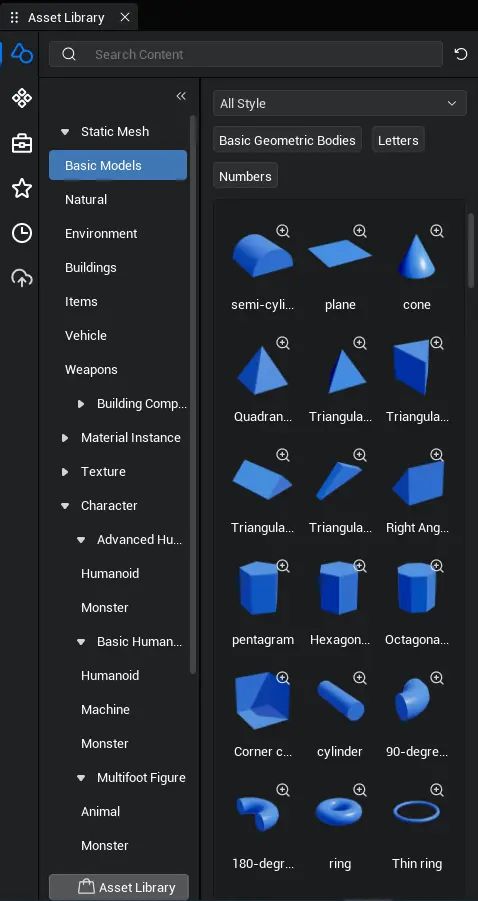
Local Asset Library Feature Description
- By default, all assets are not downloaded and require left click to download assets
- Assets take time to download, if the network state is normal, a resource will take a few seconds to download
- All assets are ordered by asset type in the local asset library
- Assets have themes, styles, categories, tags and other information to help developers find assets
- Each asset is used differently
Asset Type
Static Model
- No skeleton information, model assets without animation, e.g. houses, bricks, natural landscapes, etc.
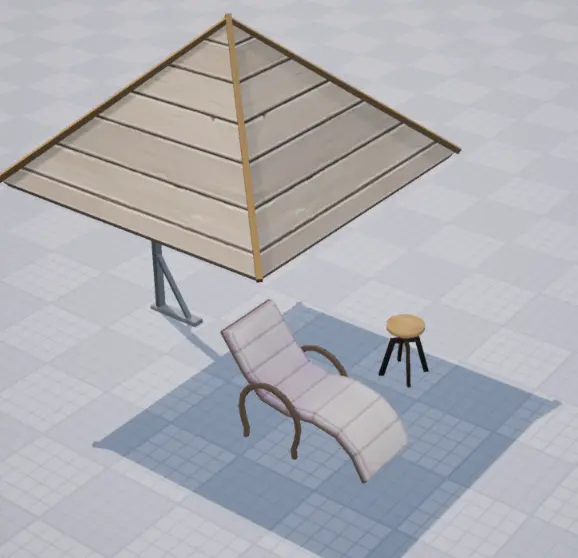
Skeleton model
- With skeleton information, developers can programmatically control model assets that play animations such as vehicles, animals, monsters, etc.
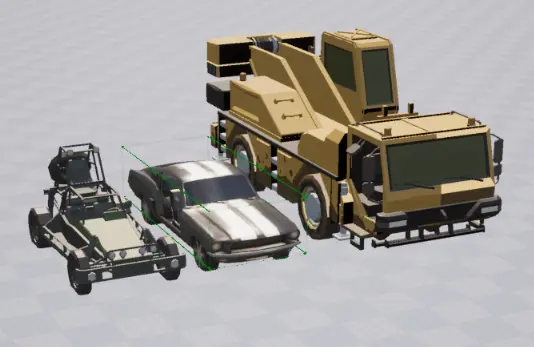
Prefab
- Prefabs are advanced assets that developers Union produce in the editor using models, effects, UI, scripts and other assets according to their design purposes. They may come with features or they may be a Union of static models.
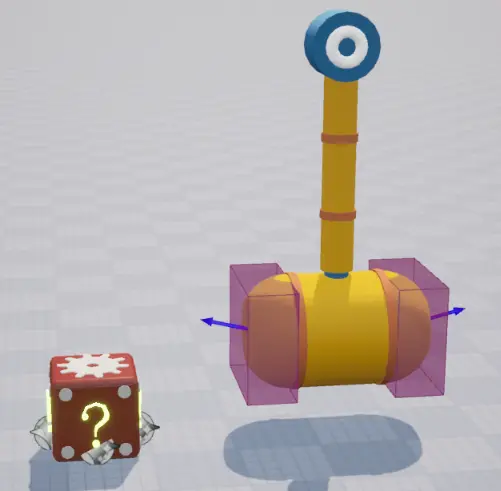
Material
- Material defines the surface properties of assets in a scene. In a broad sense, material can be thought of as a "paint" applied to a mesh to control its visual appearance. On a more technical level, material tells the rendering engine exactly how a surface should interact with light in the scene. Material defines every aspect of the surface, including color, reflectivity, ruggedness, transparency, etc.
- Materials cannot stand alone and must rely on models, as determined by matching textures
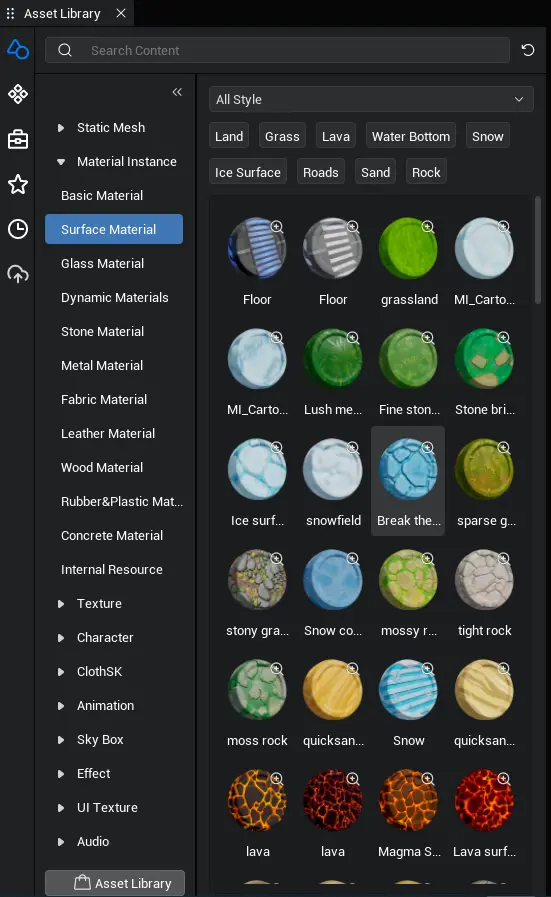
Scene Texture
- Texture resources specifically applied to scene objects with quadrilateral continuity and not available for other purposes
- Scene Texture cannot stand alone, must rely on materials, texture and material combination determine model performance
- Scene maps can only be dragged onto texture slots for materials in scene objects
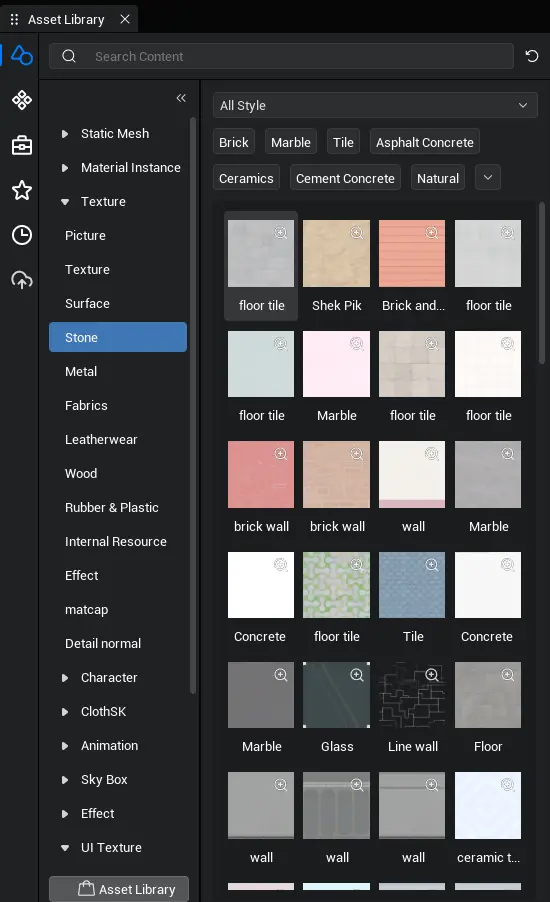
UI Texture
- Texture resources specifically applied to UI editors and not available for other purposes
- UI textures cannot stand alone and must rely on UI produced by the UI editor. Performance is determined by UI widgets
- UI textures can only be dragged to the UI editor for use
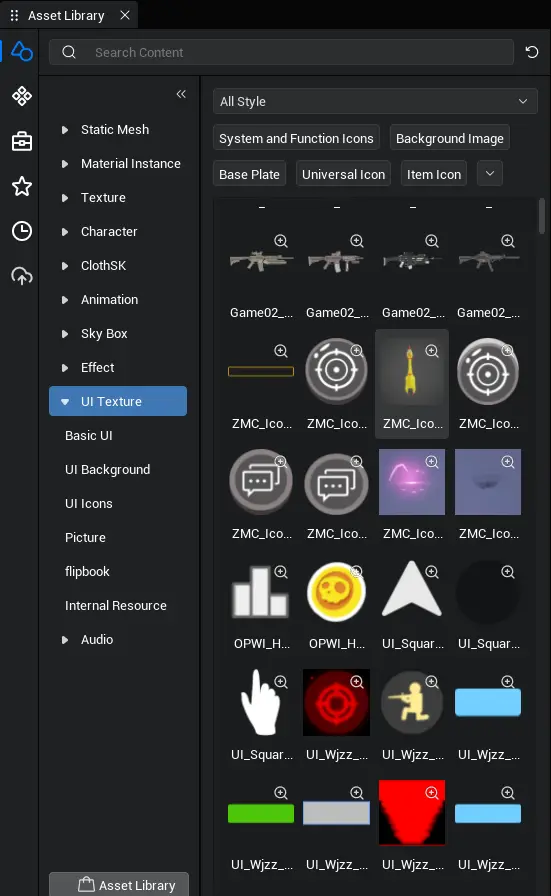
Skybox Texture
- Texture resources dedicated to world objects - Skybox, not available for other purposes
- Skybox texture cannot stand alone, they can only be dragged into Skybox objects for use
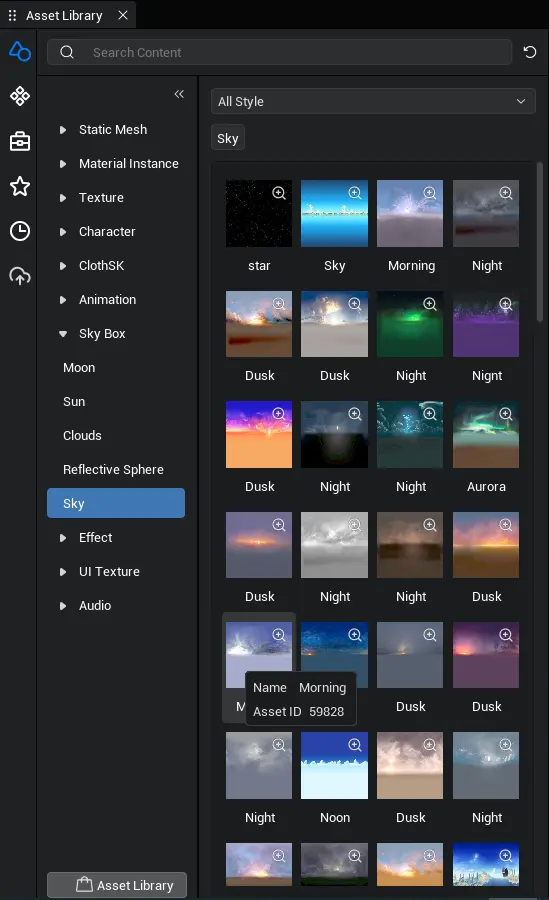
Animation Stance
- Cyclic animation resources for the editor's supporting skeleton, such as Breathe Stand, Attack Standby, Shoot Standby, etc., rely on character-related resources
- Animation Stance can only be called by script or dragged to character editor for use
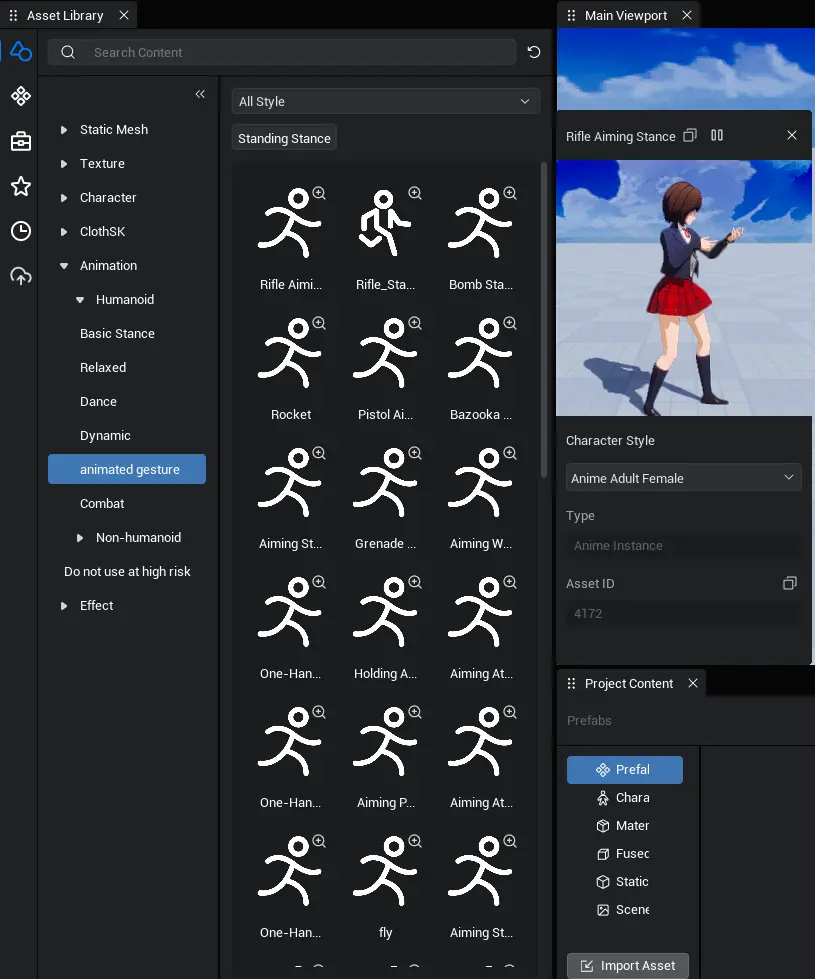
Basic stance
- Basic animation stance for the editor’s supporting skeleton, such as walking, jumping, flying, etc., relying on character-related assets
- Basic stance can only be called by script
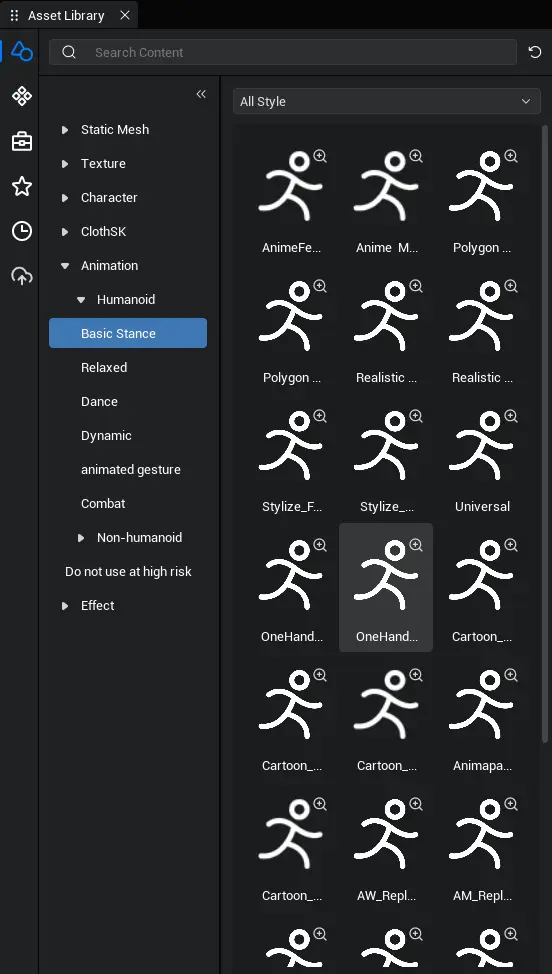
Animation
- Animation for the editor’s supporting skeleton, such as chop, jump, cast, etc., relying on character related assets
- Animation can only be called by script or dragged to character editor for use
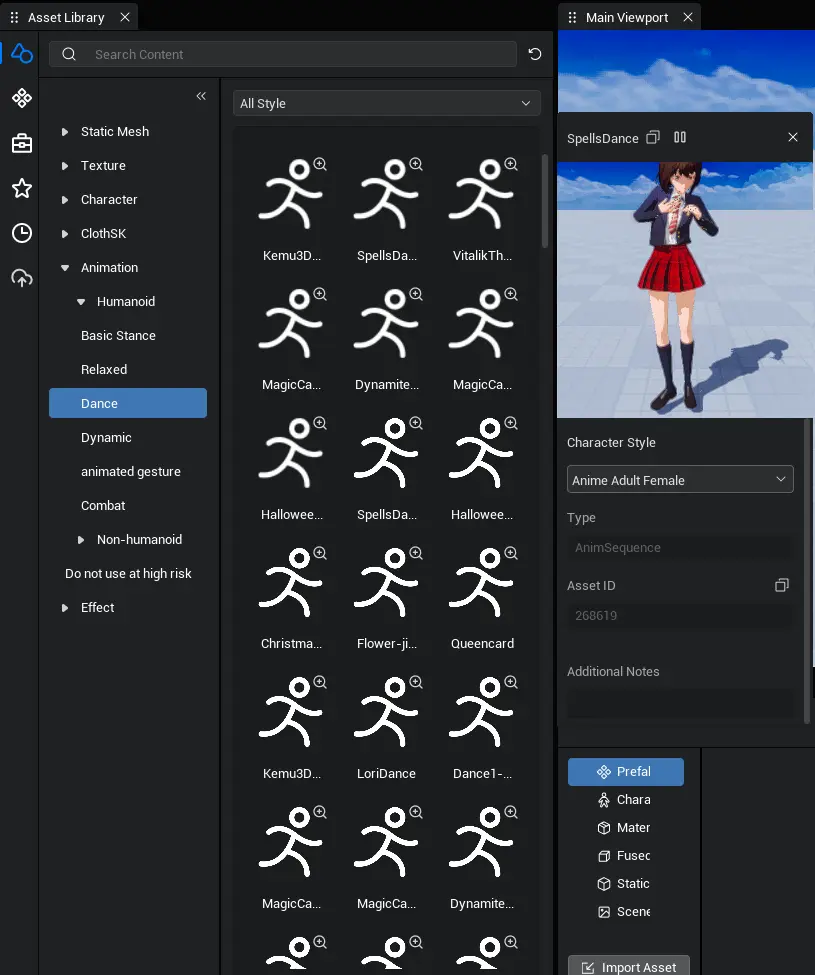
Particle effects
- Effects resources with particle systems that can be dragged into the scene or used with other assets or logic through tools such as scripts, prefabs, etc.
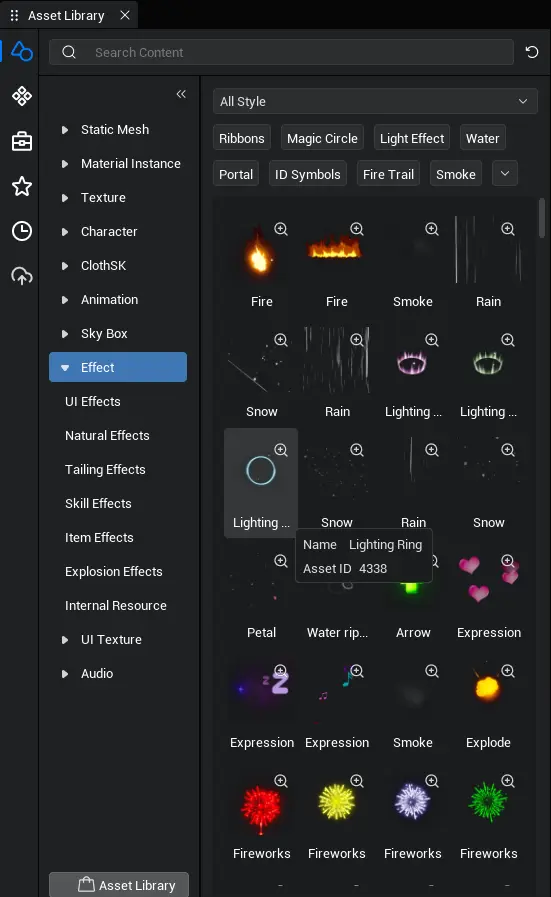
Sound effects
- Sound resources that can be dragged into the scene or used with other assets or logic through tools such as scripts, prefabs, etc.
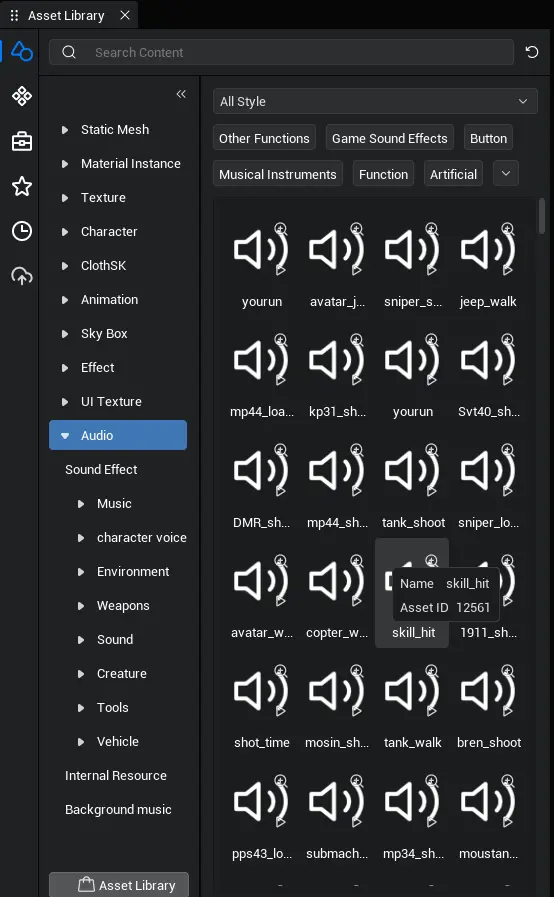
Character dress-up assets
- Assets for the appearance of different parts of the character, which can be dragged and dropped into the scene, or used with other resources or logic through tools such as scripts, prefabs, etc. They are mainly used in the character editor.
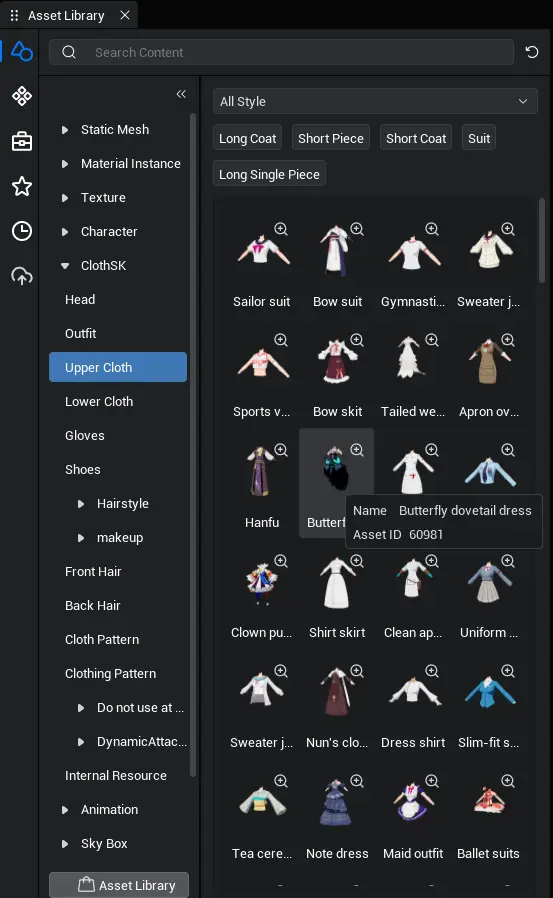
 Editor Doc
Editor Doc